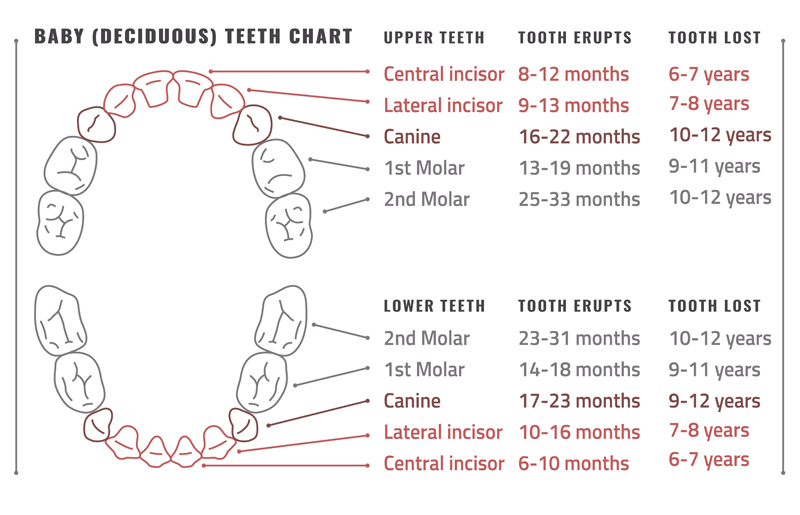At Hardy Pediatric Dentistry & Orthodontics, we believe that successful dental health outcomes result from a successful partnership between the parent, the child and the caregivers. This is why we have prepared this list of common pediatric dentistry questions to support you in your role. We encourage you to call our office at any time if you need additional help or clarification on a topic below. We want you and your child to feel you are truly part of our dental family, because you are! We care about you and know that our combined efforts can help prevent unnecessary dental challenges or conditions and pave the way for a lifetime of healthy smiles and attitudes about dental health and dental health providers.
Pediatric dentists are the pediatricians of dentistry. A pediatric dentist has 2 – 3 years specialty training following dental school and dedicates his/her practice to treating children and adolescents only. Pediatric dentists are specialty-care providers for infants and children through adolescence, including those with special health needs. Pediatric training includes studying child psychology, growth and development along with exposure to the specific dental and emotional needs of growing children.
Baby teeth (also known as primary teeth) are important to maintain for several reasons. Decay in baby teeth can affect the developing permanent teeth. Baby teeth also groom a path for the permanent teeth to follow when it is time for them to erupt. Baby teeth are also important for speaking and eating and allow for normal development of the jaw and muscles.
Any soft-bristled toothbrush with a small head, preferably an infant-specific size, should be used to clean your baby’s teeth. Daily brushing will help remove plaque bacteria that causes tooth decay and gum issues if left to fester. The American Academy of Pediatric Dentistry recommends that you brush at least once a day at bedtime.
The American Academy of Pediatric Dentistry recommends that a child have their first dental exam after the first tooth erupts or by his/her first birthday.
Dental sealants are an important part of a preventive dentistry action plan. Dental sealants fill in the crevasses on the chewing surfaces of teeth sealing them closed so that food particles can’t get trapped and cause decay.
Baby teeth start forming before they are born. While eruption patterns vary from child to child, typically you will see the first tooth start to emerge around 4 months of age. Refer to this chart for information on eruption averages:

Dental x-rays (radiographs) are an essential diagnostic tool for pediatric dentists and carry very little risk. Our office uses the most advanced 3D digital x-ray technology which emits extremely low levels of radiation. Dental x-rays prevent dangerous dental issues by detecting cavities, diagnosing bone disease and assessing trauma.
We recommend using a toothpaste that is recommended by the ADA (American Dental Association) to avoid toothpastes with ingredients that are too abrasive for your child’s young tooth enamel. You should begin cleaning your child’s gums with a soft infant toothbrush or cloth and water at birth. After teeth erupt, parents should use a tiny smear of fluoride toothpaste to brush baby teeth twice daily with an age-appropriate sized toothbrush. Once children are 3 to 6 years old, the the amount of toothpaste can be increased to a pea-size dollop. Continue to assist your child in their toothbrushing. Children should be instructed to spit out and not swallow remaining toothpaste after brushing.
Dr. Nam can evaluate the fluoride level of your child’s primary source of drinking water. If your child is not getting enough fluoride through water consumption (especially if the fluoride level is deficient or if your child drinks bottled water without fluoride), then she may prescribe fluoride supplements.
Sucking on a thumb or fingers is a natural reflex that starts during infancy. Babies use fingers or pacifiers to help them feel secure or content. Thumb and pacifier sucking habits will generally only become a problem if they go on for a very long period of time or if it continues after the eruption of permanent teeth. Thumbsucking can affect the development of the mouth and the proper placement of new teeth coming in. Pacifiers are no different and affect the teeth/mouth in the same way. Most children stop these habits on their own, but if they are still sucking their thumbs or fingers past the age of three, a mouth appliance may be recommended by Dr. Nam.
The pulp of the tooth is the inner core of the tooth which contains nerves, blood vessels, tissue and cells. Pulp therapy in pediatric dentistry is used to maintain the integrity of a injured or decaying tooth so that the child won’t lose the tooth.
Preventing tooth decay requires that parents commit to regular dental exams — beginning with the eruption of the first tooth — dedication to a daily oral hygiene routine of brushing and flossing, and working to provide the child with good nutrition. Supervising how your child is taking care of his/her teeth is essential for dental health success. Children should be helped with brushing through age 6 and supervised through age 12.
See our dental emergencies page for instructions on what to do with in a dental emergency.
The great thing about being a member of the Hardy Pediatric Dentistry & Orthodontics family is that you have a pediatric dentist AND orthodontist on site for your child’s needs. Dr. T.C. Hardy can assess when your child needs braces. At the early ages of 2 or 3 we can begin to see “bad bites” starting to form in children. Through a collaborative effort between Dr. Nam and Dr. T.C. Hardy, we can monitor your child’s development and take early steps to help reduce the need for or length of time of future orthodontic treatment.